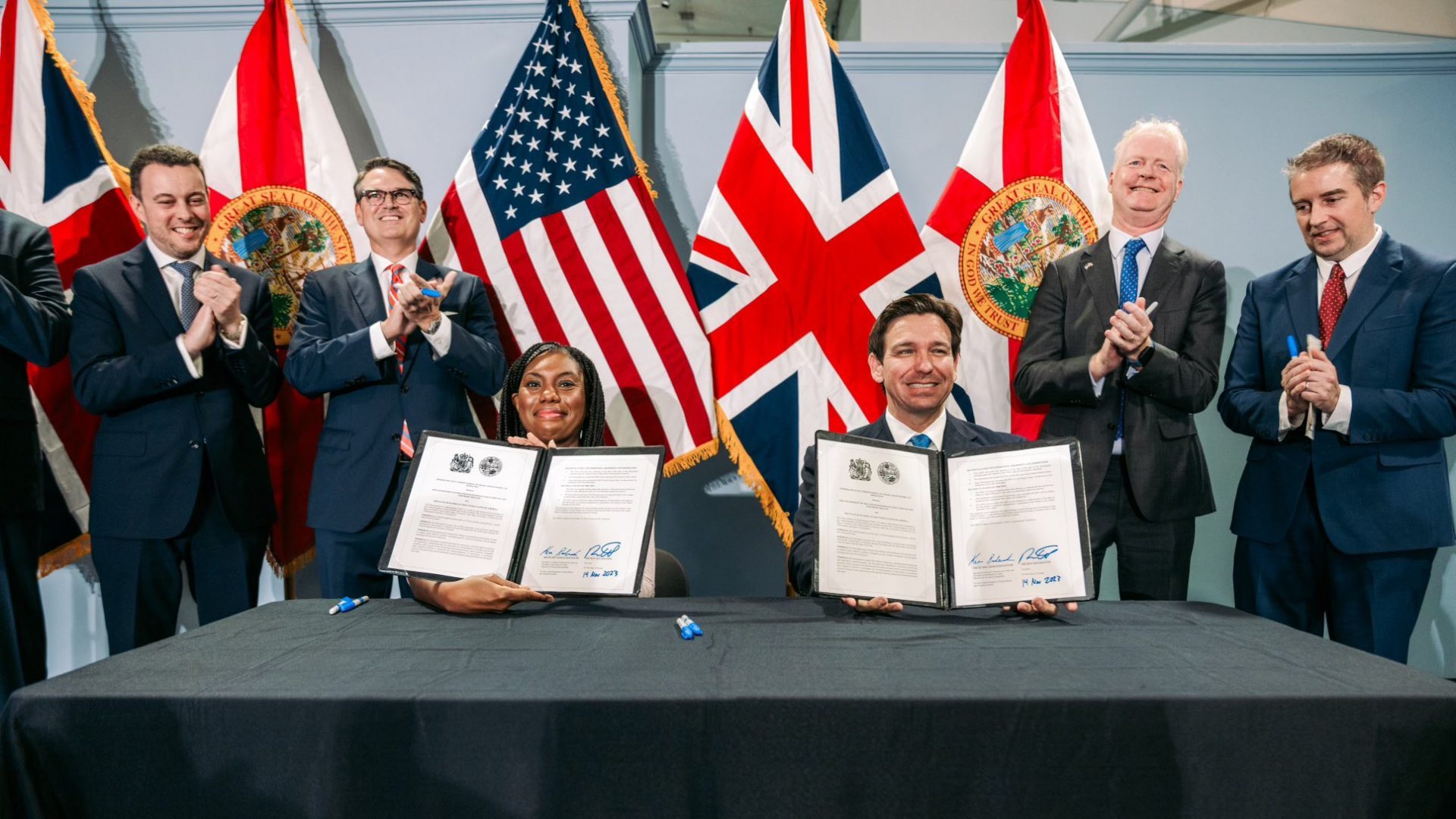Kemi Badenoch owes a lot to the Pitcairn Islands, population at the last count 47. It is because of them that the UK – based, the last time I looked, firmly in the North Atlantic – has managed to join the free trade area known as the Comprehensive and Progressive Agreement for Trans-Pacific Partnership (CPTPP).
As the name suggests, this is for countries around the Pacific Rim. Yet the mighty Pitcairns are still British and in the Pacific, so therefore the UK is a Pacific power, ready to form an economic juggernaut with its friends and sort-of neighbours – Australia, New Zealand, Japan, Malaysia, Mexico, Peru, Vietnam and the like.
The trade secretary was in San Francisco recently, attending her first CPTPP meeting, and told the throng she was “delighted” to be “advancing Britain’s rightful place on the world stage”.
Yet, despite what Badenoch says, the CPTPP is not much of a powerhouse. We already had trade deals with several of its members and we do relatively little trade in the Pacific, despite the economic pull of the mighty Pitcairns.
The latest work by the Office for Budget Responsibility – remember, this is an independent government department with the job of keeping the government economic calculations honest, decent and above board – has found that the Pacific trade deal is worth just 0.04% of economic growth to the UK over 15 years, or 0.0026% a year. Happy days!
Also, it is important to remember that the 4% hit to the British economy caused by Brexit, and calculated by the same OBR, includes this figure in its calculations already. The 4% is the cost after the benefits of the CPTTP have been included.
Unfortunately for Badenoch, 0.04% is half what the government claimed to be the benefits of the deal, which was already a paltry amount – and virtually invisible when compared with what we gained from the EU and the trade we still do with our neighbours.
This assessment helps to explain why the Tories hate the OBR – because it has an unfortunate tendency to tell the truth. It is also a perfect example of why the government’s claims of post-Brexit trade bonanzas are all total tosh.
Take the latest triumph by our trade secretary, a Memorandum of Understanding (MoU) with Florida. The government’s own press release on this “deal” is laughable. It tries to equate it with membership of the EU.
For instance, it says “Florida has a GDP of over £1.1tn – the fourth biggest of any US state and roughly the same size as Spain.” This fails to point out that we were in a single market with Spain that gave us unlimited and frictionless access to its whole economy, which was, of course, worth far more than just an MoU, which is little more than some vague talk about being nice to each other.
The press release then goes on to say: “After today’s signing the UK will have MoUs with seven US states – Indiana, North Carolina, South Carolina, Oklahoma, Utah, Washington, and Florida – with a combined GDP of £3.3tn, just under the GDP of Germany.”
Yes, of course, it is obvious. These mighty deals will make up for the collapse of trade with Germany. As if.
MoUs with individual US states are not real trade deals and never can be, they cannot and never will be able to cut or abolish tariffs. There is a simple explanation for why that is true, and it is called the American civil war.
As you might remember from history lessons, the US fought a bloody civil war to stop states seceding and trying to create a new country made up of more powerful individual member states with their own sovereignty. Washington DC won, the USA remains one country, and that is why Washington DC and the federal government get to negotiate, agree and sign international trade deals.
For instance, a trade deal like the one the Brexit supporters told us we would have with the USA the second we left the EU, the trade deal that the Daily Express said in August 2019 would be signed within days, the trade deal that is not on the cards no matter who gets into the White House, the trade deal that would never make it through the Senate, the trade deal that still would not be enough to make up for leaving the EU. That trade deal.
And so, we have the national embarrassment of Badenoch desperately trying to trumpet MoUs with individual states of the USA, as if they are really trade deals, as if they are worth billions, as if they make up for Brexit and as if the Confederacy won the civil war.
Maybe we should be grateful that the trade secretary limits herself to these useless and self-abasing rituals rather than trying to negotiate real trade deals. Because the ones with New Zealand and Australia, the only really new post-Brexit ones worth mentioning, are so bad for the UK that our antipodean cousins are actually laughing at us about them. They will add just 0.08% to the UK economy over 15 years, much of it at the expense of our own farmers. Why on earth did we agree to this and then sign it? Possibly because the deal was negotiated by one incompetent – Liz Truss, and signed by another – Boris Johnson.
The benefits are also so small because we do so little trade with Australia and NZ: well under 2% of our total trade. This is the perfect example of why “gravity” matters in trade. It is one of the very few universally accepted rules of economics that countries trade more with their near neighbours than countries further away. Since it is literally not possible to find countries further away from the UK than Australia and NZ, we do very little business there.
All in all, the trade deals that this Tory government has agreed to are hardly worth mentioning, were signed in haste to get the publicity, badly negotiated, and their influence on the British economy is so small as to be virtually unmeasurable.
No wonder they are reduced to claiming that MoUs with US states are actually trade deals worth billions or that membership of the CPTPP is a game changer; it is all they have got.
Still, thank heavens for the Pitcairn Islands – where would we be without them?
You can read more from Jonty on Substack at Jonty’s Jottings




